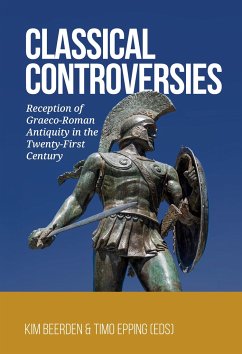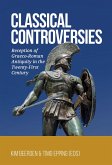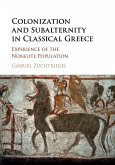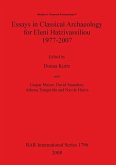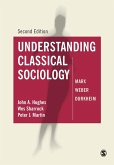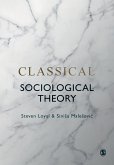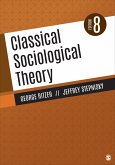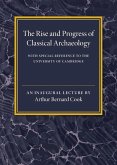Modern receptions of Graeco-Roman Antiquity are important ideological markers of the ways we envisage our own twenty-first-century societies. An urgent topic of study is: what kinds of narratives - sometimes controversial - about Antiquity do people create for themselves at this moment in time, and for what reasons? This volume aims to showcase a number of illustrative examples, and thus to provide a deeper understanding of twenty-first-century reception of Antiquity.After a general introduction in Part I, the volume focuses on two main fields: controversies referencing ancient and modern literary works; and controversies surrounding heritage ethics.Part II takes literary evidence from the USA to Italy as its starting point: it shows how metaphors about early Christianity find their way into American conservative discourse; how Sparta is evoked in right-wing thinking in the USA, Germany, France and Scandinavia; and how Aeneas plays a role in recent Italian debates on migrations. The last paper discusses the depiction of classicists in modern novels.Part III focuses on heritage ethics and material culture, in first instance taking practices at the Dutch National Museum of Antiquities (Rijksmuseum van Oudheden) - on the display of death, queering and orientalism - as case studies. The last paper delves into the history of the Via Belgica to show how antiquity has been weaponised for political aims for many centuries.Together, these papers show that academics should engage with the receptions of antiquity in the recent past and present. If they want their research and museum displays to be part of current reception, they should make their voice heard.About the EditorsKim Beerden is a lecturer in Ancient History at Leiden University, The Netherlands. She has published in the field of ancient divination, see her monograph Worlds full of signs: ancient Greek divination in context (Brill, Leiden: 2013; paperback 2021).Timo Epping is a museum educator at the National Museum of Antiquities (Leiden, The Netherlands). He has published several articles in journals for history teachers and museum education.ContentsPart I: IntroductionPrefaceKim Beerden1. Introduction: Stop the Steal!Frederick G. NaereboutPart II: Controversies and Literary Traditions2. Whose persecution? Early Christianity as a Metaphor in Contemporary American Political DiscourseK.P.S. (Renske) Janssen3. Spartans on the Capitol: Recent Far-Right Appropriations of Spartan Militarism in the USA and their Historical RootsStephen Hodkinson4. Leonidas Goes North: Swedish Appropriations of Sparta and the Battle of Thermopylae and their Wider European ContextJohannes Siapkas and Thomas Sjösvärd5. Pop Culture against Modernity: New Right-Wing Movements and the Reception of SpartaJulia Müller6. Fato Profugus. Aeneas the Refugee: an Italian DebateMarco Gay7. The Classicist as a Literary Character in Contemporary Literature: the Depiction of a DisciplineBarbara HollerPart III: Controversies and Heritage Ethics8. Ancient Death and the Contemporary World: the Role of Graeco-Roman Death in Museum DisplayPatricia Kret9. Queering the National Museum of AntiquitiesSuus van den Berg10. Dummie de Mummie: an Egyptian Body as the Undead, Oriental OtherDaniel Soliman11. Who Owns the Road to the Roman Past? The Case of the Via Vipsania aka the chaussée romaine, the Römerstrasse, the Romeinse kassei, aka the Via BelgicaLiesbeth Claes

